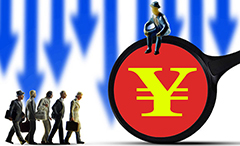PE investments in 2018 hit record $222 billion as high-tech, fintech shine
2019-02-25
China Daily
China’s private equity investments hit a new high last year of $221.8 billion, up 22 percent year-on-year.
Marginally ahead of the previous peak in 2016, the new record reflects the large supply of available capital meeting substantial demand for funding in the private sector, bolstered by several hot tech and fintech megadeals, according to PwC, a firm that provides professional services including audit and assurance, tax and consulting.
“Unlike industrial investors that are likely to raise the alarm about possible industrial integration and technology transfers, PE funds are better positioned to seal outbound M&A deals, thanks to their identity and business model,” said Leon Qian, who leads PwC’s clients and markets practice in northern China.
“In addition, PE fund managers are more professional in handling M&A deals and more experienced in risk aversion than industrial investors,” he said.
Record PE activity offset a 23-percent decline in the value of Chinese mainland outbound mergers and acquisitions from $122.5 billion in 2017 to $94.1 billion in 2018.
The total value of China’s M&A deals remained flat at $678.3 billion last year, according to a PwC report published earlier this month.
The decline was triggered by multiple factors including lack of investment capital, targets and willingness to invest overseas, said Jiang Guorong, Citi’s managing director and head of corporate and investment banking for China.
He said on the one hand, some large Chinese buyers had to adjust their outbound investment value as it takes time for them to digest a number of big M&A deals they made in the past few years. On the other hand, certain countries imposed tighter restrictions on foreign investment. On top of that were deleveraging efforts in China that led to a shortage of investment capital.
“Despite the fluctuations in Chinese outbound M&A, the overall trend of expansion and globalization of Chinese companies will not change, so M&A will keep growing in the long run,” Jiang said.
Opportunities for outbound M&A will arise in sunrise industries including education, healthcare and consumer products, as well as traditional industries like oil and gas, and natural resources.
Besides, large internet companies are also turning rapidly from domestic players that mainly target China and Chinese consumers into global players, he said.
With the help of Citi as a financial adviser, Ant Financial, a digital financial services provider and an affiliate of Alibaba Group Holding Ltd, raised about $14 billion from equity financing in 2018 to accelerate its go-global strategy and technology innovation.
The PwC report showed that high technology, finance, consumer products, healthcare and industrial products were the top five sectors last year, in terms of the value of deals made by private equity players, venture capital funds and their ilk.
“Before 2016, China’s outbound investment style was mainly growth investing, a strategy focused on capital appreciation. But now it has changed to value investing, a tactic highlighting technology and brands, with investors attaching greater importance to investing in ecosystems and value chains,” Qian said.
The search for technology and brands means that developed markets in the US and Europe, as well as some parts of Asia, are still the biggest destinations for Chinese buyers in terms of deal volumes.
Last year, Asia became the second-largest destination for China’s outbound M&A by deal volume. In all, there were 178 deals, higher than that in Europe (158) but trailing the US (200).
But Europe continued to attract the highest dollar amounts, with $50.9 billion of transactions conducted by Chinese buyers in the region, while the deal value in the US dropped to $13.2 billion from $18.5 billion in 2017 and $66.4 billion in 2016, according to PwC.


